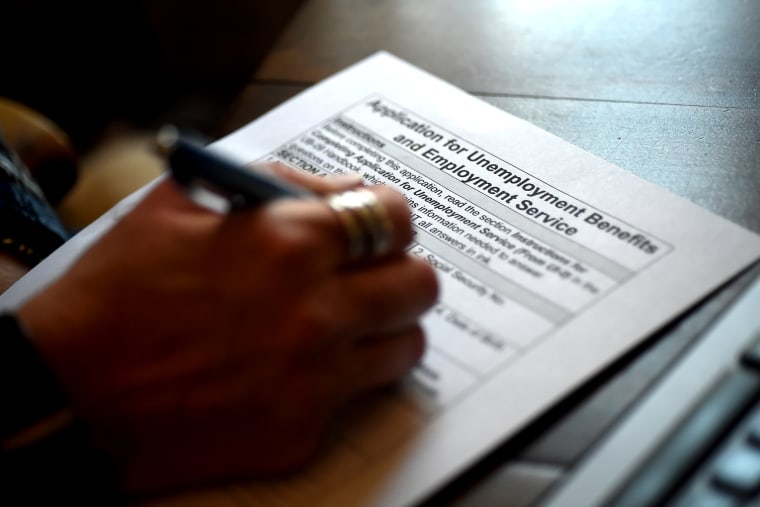When it comes to weekly unemployment filings, our whole understanding of "normal" flew out the window six months ago. For example, as regular readers know, it was considered a catastrophe during the Great Recession when jobless claims topped 600,000.
But in 2020, as the coronavirus pandemic started taking a brutal toll on the U.S. economy, Americans confronted an entirely new set of standards -- to the point that it seemed like relatively good news last month when initial jobless claims fell below 1 million for the first time since March.
Progress has nevertheless been hit or miss. The new report from the Labor Department this morning pointed in a decidedly discouraging direction.
In the week ending October 10, the advance figure for seasonally adjusted initial claims was 898,000, an increase of 53,000 from the previous week's revised level. The previous week's level was revised up by 5,000 from 840,000 to 845,000. The 4-week moving average was 866,250, an increase of 8,000 from the previous week's revised average.
The overall total is the worst in two months, and we've now had 30 consecutive weeks in which the number of Americans filing for unemployment benefits was worse than at any time during the Great Recession.
All of which leads to the point we discussed last week at this time: the country still needs economic relief as the coronavirus pandemic continues to take a brutal toll.
A breakthrough, however, remains elusive. Though White House National Economic Council Director Larry Kudlow suggested yesterday that negotiations on a new aid package aren't yet dead -- he said largely the opposite last week -- Treasury Secretary Steven Mnuchin sounded a more pessimistic note.
"At this point, getting something done before the election and executing on that will be difficult," Mnuchin said at the Milken Institute Global Conference yesterday.
Senate Republicans, who've refused to consider both of the aid packages approved by the Democratic-led House, are moving forward with plans to vote next week on a slimmed down proposal. The GOP package -- referred to on Capitol Hill as the "skinny" plan -- will carry a price tag of roughly $500 billion, which is less than a third of the White House's current offer of $1.8 trillion, and less a fourth of the size of the $2.4 trillion bill recently approved in the lower chamber.
The Senate Republicans' package, in other words, is simply for show, and isn't a serious attempt at governing. (One might even say they're a post-policy party.) Their posturing reinforces fears that a bipartisan agreement before Election Day is unlikely.
For his part, the president tweeted on Tuesday, "STIMULUS! Go big or go home!!!" GOP senators have responded by effectively choosing the latter over the former.
As for Democratic leaders, I've seen several suggestions of late that House Speaker Nancy Pelosi (D-Calif.) should simply accept the administration's $1.8 trillion offer, since it's far better than zero. The trouble is, it's not nearly that simple: Democrats and Team Trump aren't just arguing about an overall dollar amount. As the Treasury secretary conceded yesterday, "There are money issues, but there's [sic] also policy issues," including the White House's insistence that a deal include liability protections for employers.
Watch this space.

